Event Calendar 
-
 January 5. 08:00 - 31. 23:59
January 5. 08:00 - 31. 23:59 -
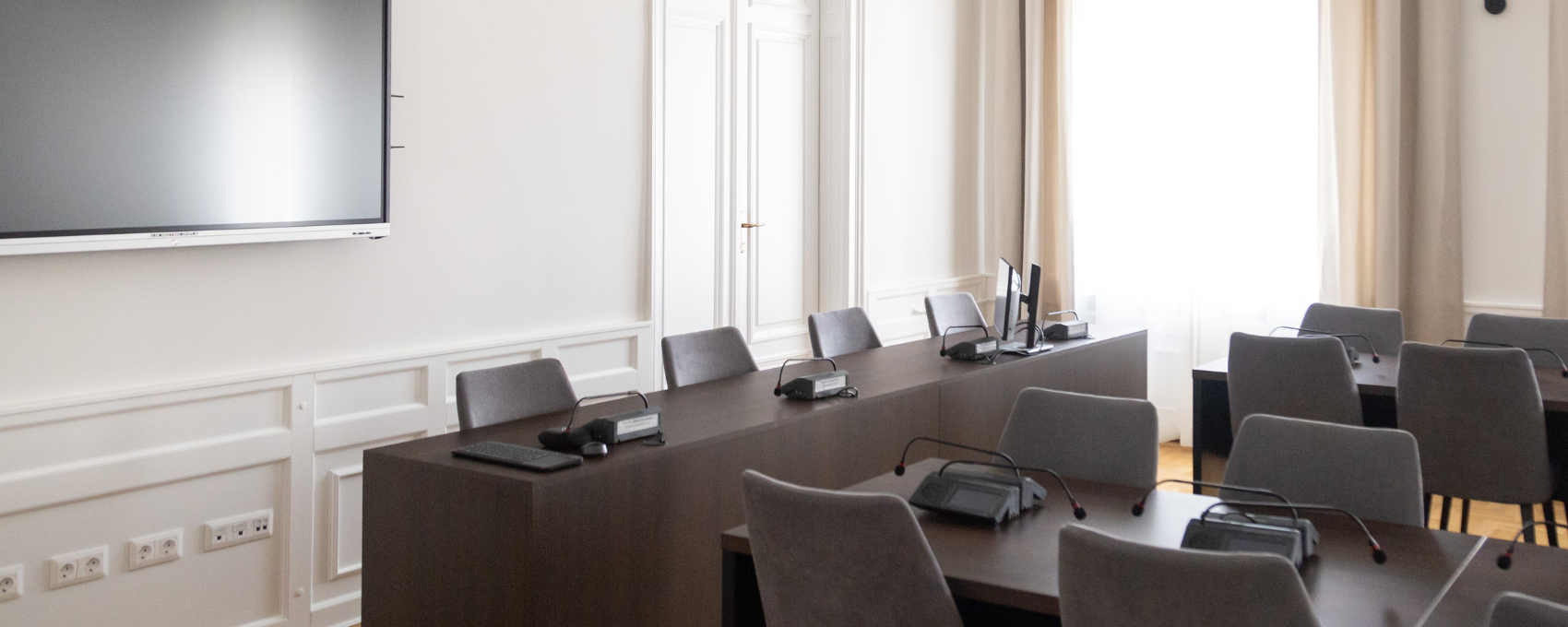 January 14.14:00 - 16:00
January 14.14:00 - 16:00 -
 February 2. 08:00 - 7. 23:59
February 2. 08:00 - 7. 23:59 -
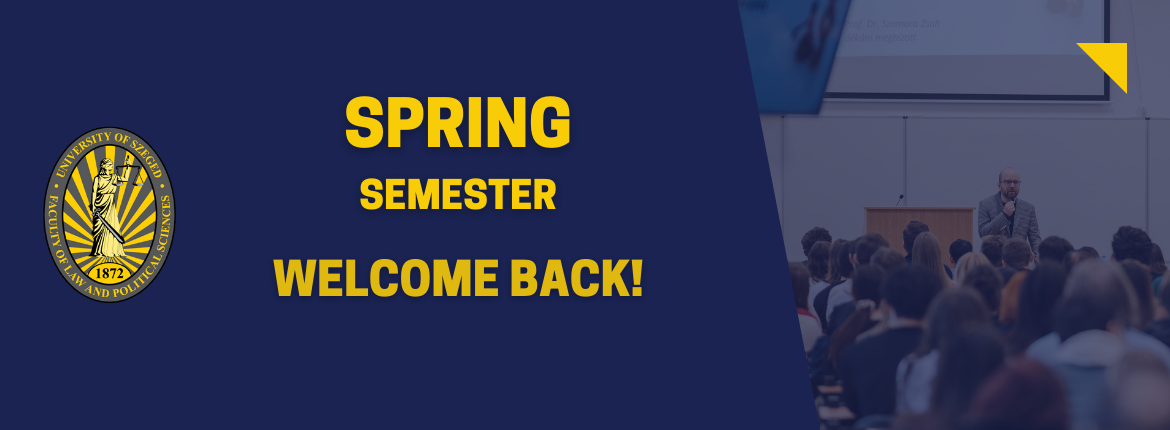 February 9.00:01 - 23:59
February 9.00:01 - 23:59 -
 April 2. 00:01 - 7. 23:59
April 2. 00:01 - 7. 23:59
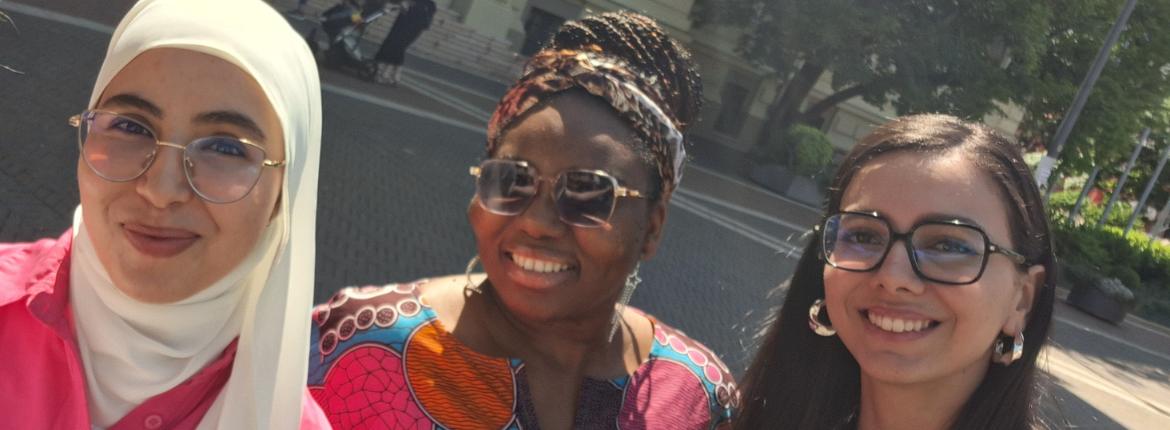
Three Master’s students from the University of Szeged’s Faculty of Law and Political Sciences have made waves at one of the most intellectually demanding arenas for Francophone university debate: the Concours Inter-Universitaire de Débat de la Haye – Ligue mondiale francophone du format de débat de la Haye, organized by the Corax Foundation.
In spring 2025, Tesnim Souissi, Aminé Touré and Rachida Roukiaoui took part in the Concours inter-univeritaire de débat, a highly competitive international debate organized online by the Corax Foundation from the Hague. Entirely conducted in French, this prestigious competition brings together students from Francophone and Francophile institutions across Europe, Africa, the Middle East and beyond. It is more than a language challenge – it is a test of intellectual agility, intercultural sensitivity, rhetorical finesse and raw courage.
And the University of Szeged’s team did not just participate – they impressed. Reaching the 1/8 finals (round of 16) in a field packed with native French speakers from globally renowned institutions, the team emerged as both an underdog and a force to be reckoned with.
The debate: more than words
The Concours is not your average academic contest. Its very structure is designed to provoke deep thought and dynamic exchange. Each round presents a new, complex question – many touching on professional ethics, cultural identity and the evolving norms within Francophone societies. Competitors must argue either in favor or against the proposed resolution, regardless of their personal views. It’s a verbal chess match, where clarity is king and nuance is everything.
This year’s edition focused on critical themes related to professions and traditions in Francophone countries, placing students in high-pressure settings where they had to formulate, structure, and deliver compelling arguments in real time.
Participation required not only fluency in French, but also a mastery of discourse – strategic thinking, emotional intelligence, cultural literacy, and intellectual rigor. The Szeged team, under the mentorship of senior lecturer Réka Szaniszló, brought all of these to the table, and more.
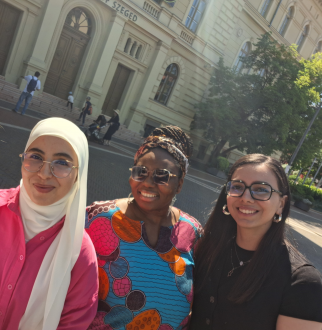
The experience, in their own words
Each student reflected on the journey not as a mere academic exercise, but as a formative intellectual adventure.
“In The Hague, I did not simply take part in a university debate, I underwent an experience that shifted me, challenged me, transformed me,” writes Rachida Roukiaoui.
“There, ideas did not float in abstraction; they were embodied in voices, in gazes, in tense silences... I realized that debating is not about defeating, but about exposing one’s certainties to the test of reality... It was there that I truly grasped, with rare clarity, what it means to be intellectually alive.”
Rachida’s testimony echoes the deeper stakes of the competition – not only to persuade, but to encounter the Other, to hold your ground while learning to doubt yourself productively.
Aminé Touré, reflecting on the emotional and intellectual demands of the tournament, shared:
“Taking part in the competition allowed me to test my ideas and refine my argumentative skills when discussing complex topics related to professions and traditions in French-speaking countries. Reaching the 1/8 finals with my team was a real source of pride... and it has fuelled my ambition to become more involved in intercultural dialogue.”
For Tesnim Souissi, the experience was a launching pad for both confidence and clarity:
“It was an exceptional experience that allowed me to strengthen my skills in argumentation, public speaking, and teamwork. Together with my team, we reached the round of 16, which I am very proud of. I sincerely thank Ms. Réka Szaniszló, our coach, for her trust and guidance throughout this journey.”
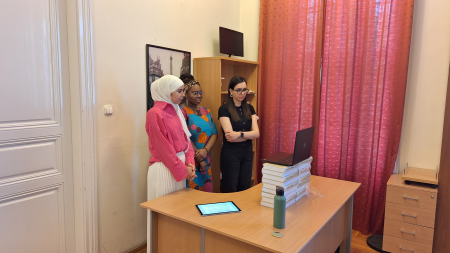
Language, identity and performance under pressure
There’s something remarkable about competing in an elite French-language event as non-native speakers. It’s not just about linguistic fluency – it’s about owning the language in a high-stakes setting, using it as a tool of persuasion, precision, and presence. For the Szeged students, it meant stepping outside their comfort zone and onto a stage dominated by global peers. And they didn’t just survive; they thrived.
This achievement also reflects the strength and ambition of the University of Szeged’s French-language International Relations program – a unique offering that combines political analysis, international diplomacy, and advanced language training. It prepares students not just to speak about the world, but to speak to the world.
Coaching that makes a difference
Behind the scenes of this success was Réka Szaniszló, senior lecturer and academic mentor. Her role as coach went far beyond logistics. It involved weeks of preparation – writing and rewriting arguments, training for spontaneity, holding mock debates, and cultivating the soft skills of listening, pacing, and rhetorical confidence.
As one of the few teams without a native French speaker, this level of support and mentorship was critical. And it paid off.
“These students debated with depth, grace, and absolute seriousness,” Szaniszló remarked.
“They showed that Szeged is not only part of the conversation – we help shape it. This was an experience of becoming: becoming sharper thinkers, more agile speakers, and more conscious global citizens.”
A moment – and a message
In an age of disinformation and polarization, spaces like the Concours inter-universitaire de débat are more vital than ever. They offer students a model of dialogue that is both critical and respectful, impassioned and precise. And for the University of Szeged’s team, participation was more than a medal round. It was a statement:
That intellectual courage knows no borders. That language is power. And that young thinkers from Central Europe are ready to take the floor – and keep it.